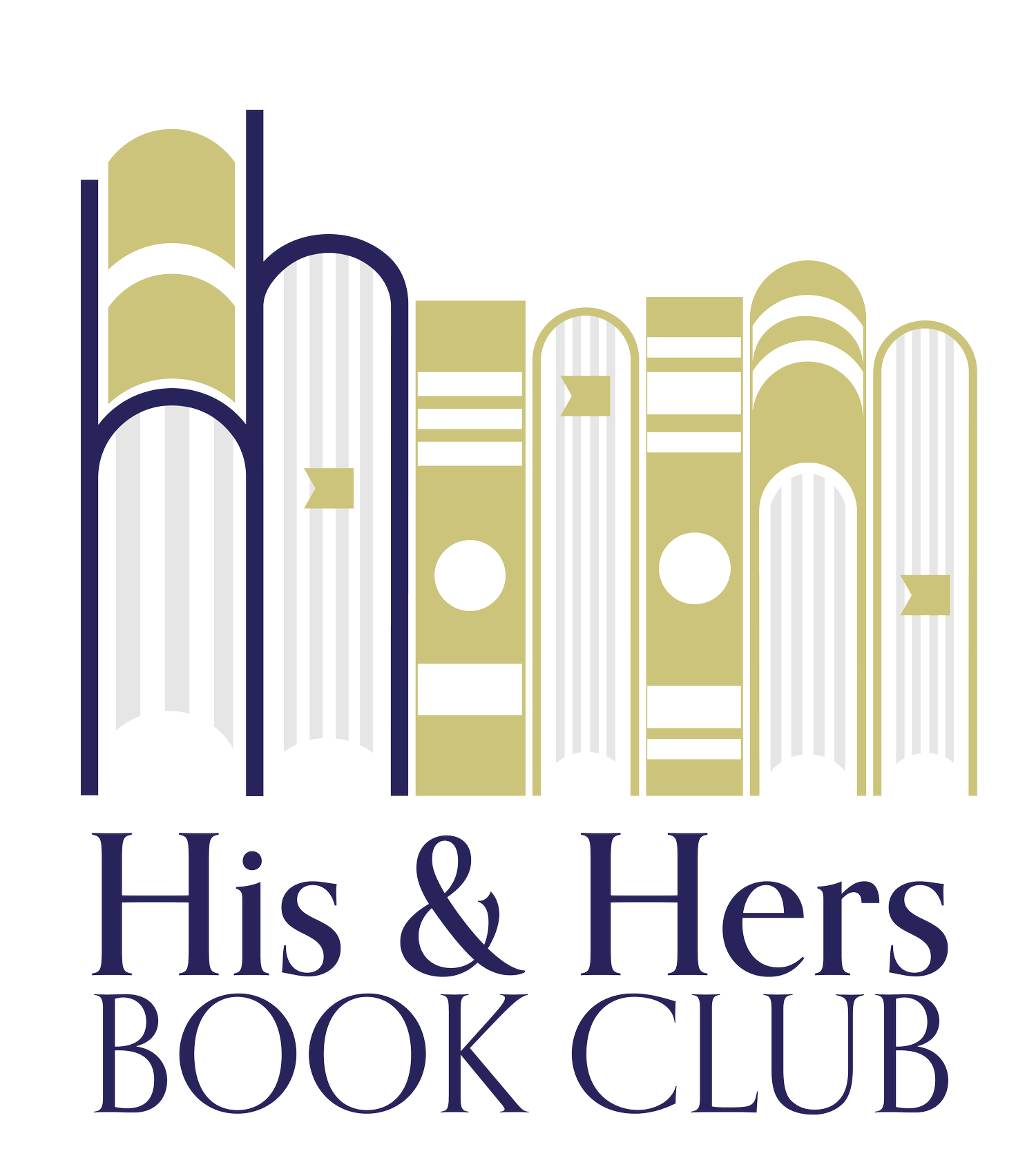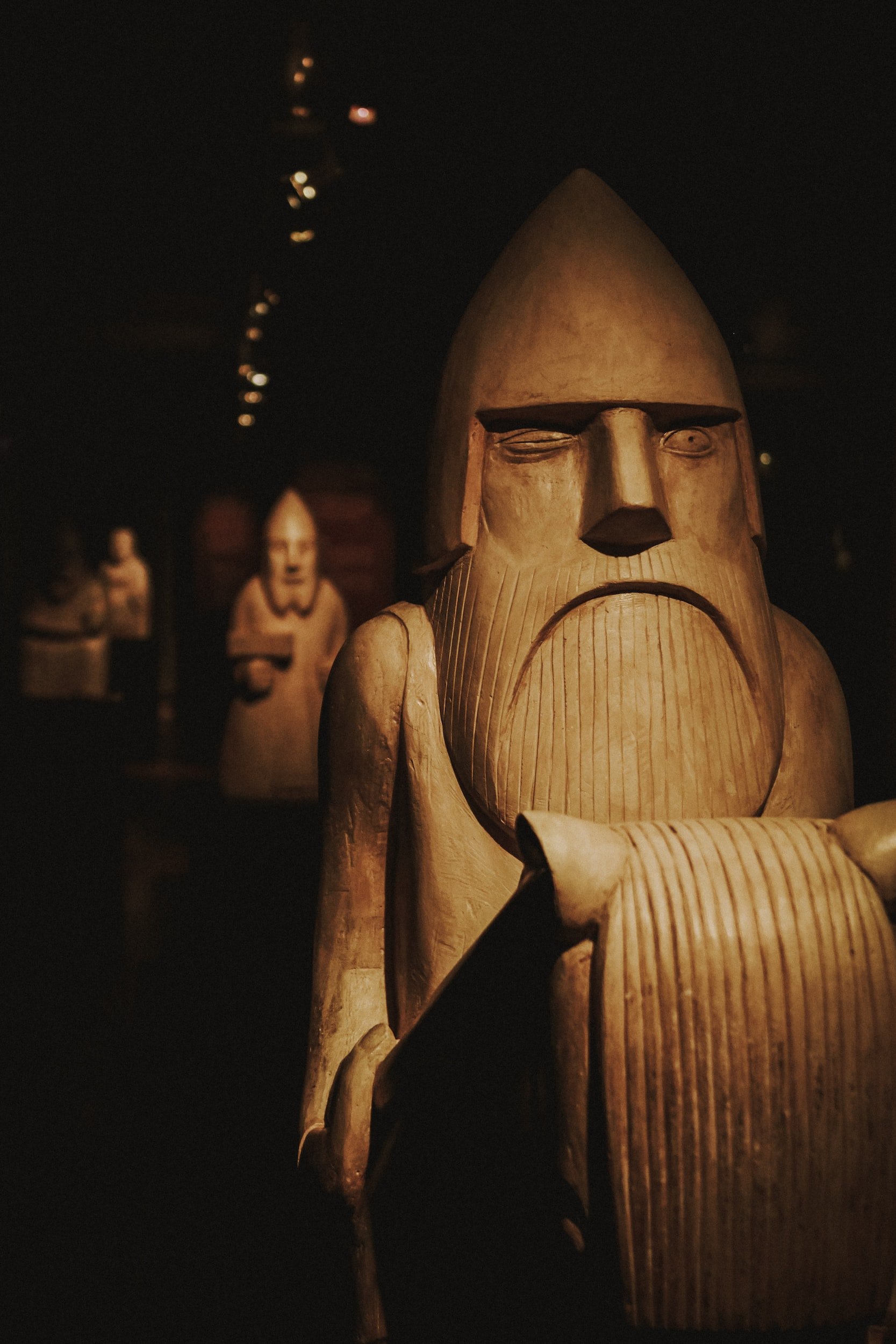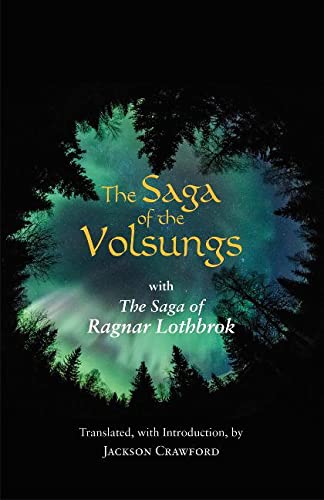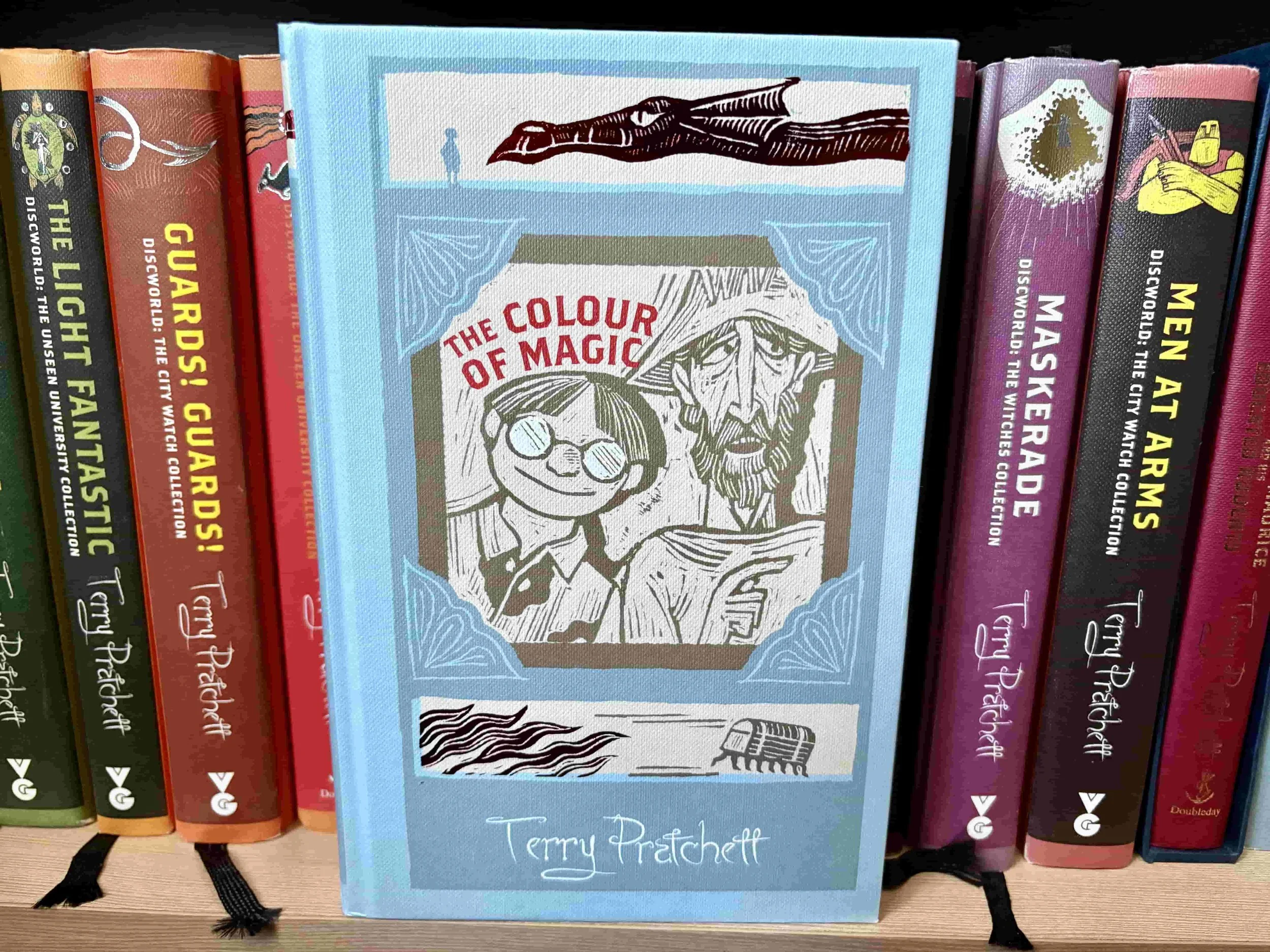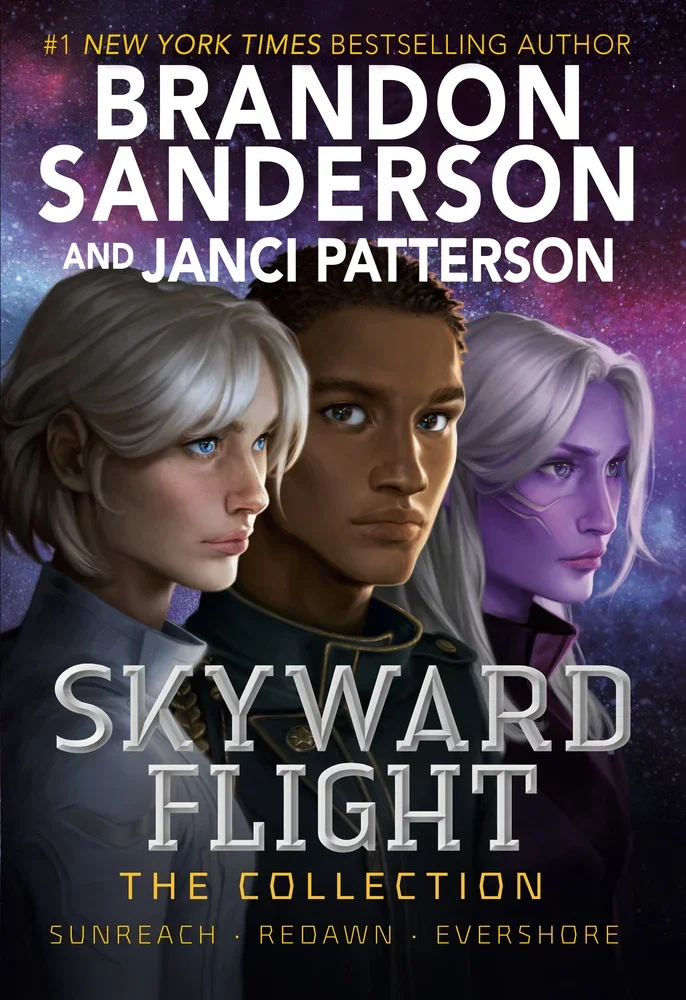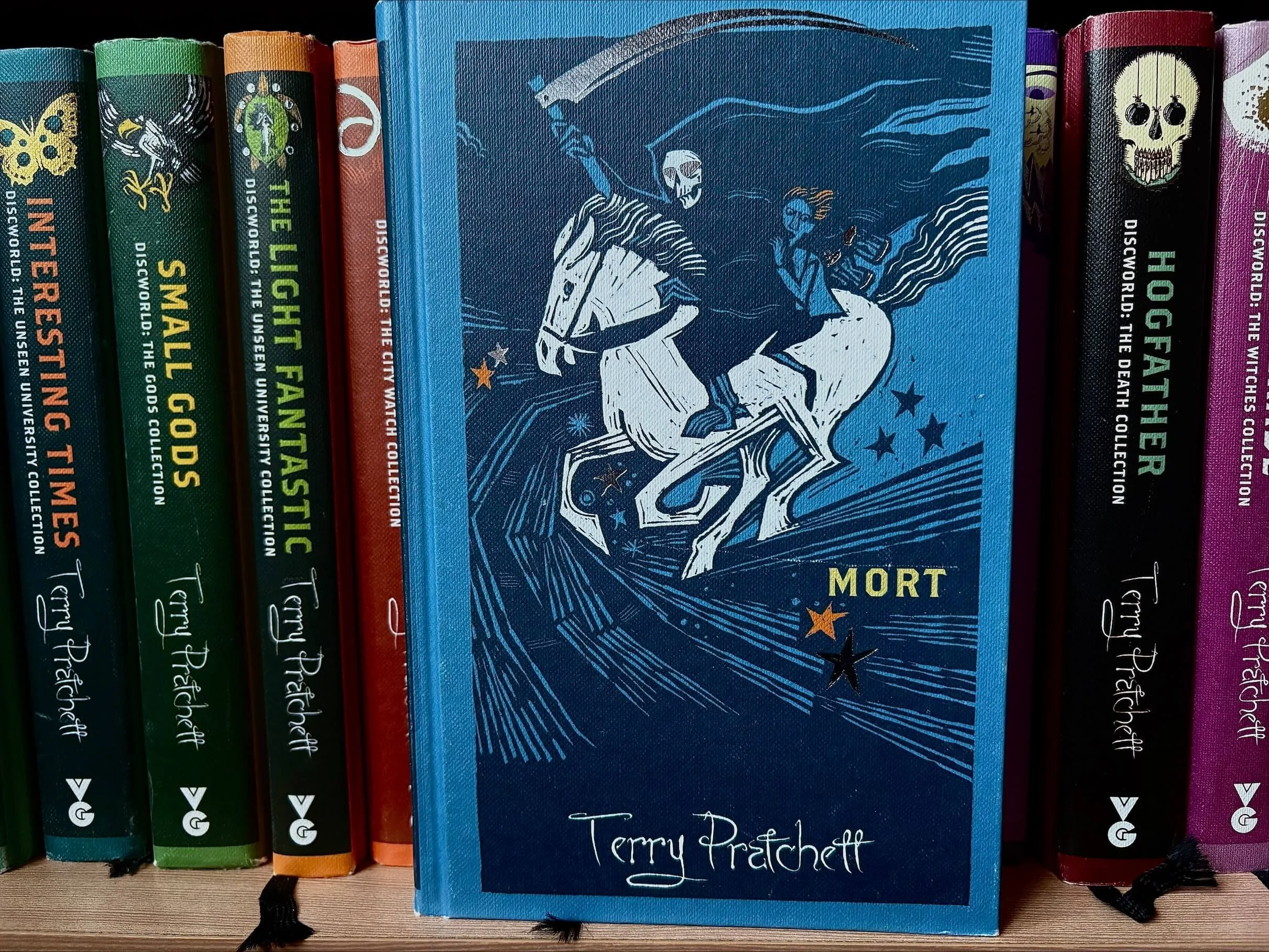Best Norse Mythology Books For The Modern Day Viking!
Viking culture has been the subject of discussion and fascination for scholars ever since their first raids began in England around 800 A.D. And while for most of the centuries after their first incursions into western civilization, these Nordic warriors have become synonymous with pillaging, raiding, and generally inspiring nightmares for all their southern neighbors, in recent years there has been a resurgence into the exploration of a far more interesting aspect of their society - their rich and diverse culture.
Although Vikings were generally a non-literate people, there are a variety of sources from the annals of other cultures that give us a glimpse into the life, culture, and activities of these fearsome Scandinavian warriors. Considering that they voyaged all the way to the Mediterranean, the Middle East and even North America, there are thankfully plenty such sources to help historians separate truth from fiction.
Best Norse Mythology Books: While Vikings may generally have been a non-literate people. they did utilize a system of runes, such as the ones in this image. Photo Credit: Unsplash.
While "Vikings" was the term collectively given to all invaders by the Anglo-Saxons, in reality, the crews that attacked their settlements consisted of people from Denmark, Sweden, Norway, and later on Iceland and Greenland. That means that even though they were perceived as part of the same invading force, it was far more likely that each incursion consisted of people with different leaders, dialect and customs than the last. And while there might have been slight variations in their region of origin, most sources agree that all invaders had one thing in common - faith.
The Nordic faith, labelled "paganism" by the English, was in stark contrast with the values of Christianity. It was a polytheistic belief, focused heavily on ritual practice and mysticism. The concepts of "death" and "afterlife" played a central theme in the belief system, which again heavily contrasted with it's Christian counterpart. The Abrahamic religion preached that if one wished to gain entry to Heaven, they should lead a pious and devoted life. The Old Norse religion, on the other hand thought that in order to enter Odin's hall, one should seek glorious death in battle. Those who died on the battlefield became the Einherjar and would spend their days drinking and fighting, while waiting for the end of days (Ragnarök). Those who died from disease or old age though, go to the realm of Hel or become Draugr - living dead that are fated to rise and haunt the living.
Needless to say, if your entire religion revolves around dying gloriously in battle, you're bound to produce some pretty determined warriors!
Best Norse Mythology Books: Odin, the chief deity of pre-Christian Nordic and Germanic religions. Photo credit: Unsplash.
Today, Norse paganism has been revived in various religious or semi-religious movements but thankfully dying in battle no longer plays a central role in their creed. Paired with the increasingly popular romanticized portrayals on Vikings in modern entertainment, the world is becoming increasingly fascinated to learn more about the religion (and mythology behind it), which struck fear into the heart of Christendom.
As mentioned earlier, Vikings were not the most literate of peoples. There are a few runic inscriptions with religious content that survive to this day, as well as several Poetic Edda's based on mostly oral tradition. And even though there are plenty of sources created in Latin after the Christianization of Scandinavia, there are still vast gaps in our present-day understanding of the religion. An attempt to breach these gaps has been made by multiple linguists, scholars and authors along the years, but the 9 works of literature outlined below provide the most coherent and chronological narratives, making them the best Norse mythology books for the modern day Viking!
Affiliate Disclaimer
Disclaimer: This article uses affiliate links, meaning: at no additional cost to you, we earn a small commission if you click-through and make a purchase. As an Amazon Associate we earn from qualifying purchases. We only feature products that we believe in and use ourselves. Your support means the world to us and allows us to host this website. Thank you!
Gaiman's take on Norse Mythology is one of our absolute favorite guilty pleasures, and one of the best Norse mythology books for anyone brand new to the world of the Aesir and Vanir. Although the book only retells a few dozen selected myths, it does so in a smooth-paced chronological order, starting from the creation of the universe, going all the way though to the time Thor had to put on a wedding dress (Yep, you read that one correctly!).
The author is renowned for his impeccable storytelling, and Norse mythology has clearly influenced some of his other works, such as American Gods. His take on the subject matter is a truly unique one, presenting the myths in the form of a novel, with chapters effortlessly transitioning into one another without breaking the continuity of the narrative, thus creating a more cohesive and immersing world that readers can truly get enveloped in.
Even readers that have spent years studying up on Norse mythology can sometimes get lost of overwhelmed by the amount of gods, locations, rituals and rites that make up the lore of Odin's pantheon. Here is were John Lindow's work comes in extremely handy.
Lindow goes into a completely different direction than Gaiman - instead of presenting the myths in the form of a novel, his work is a sort of encyclopedia on the personages, cosmology and terminology of the Norse mythos. While it isn't exactly sufficient by itself to present an immersive narrative, it is truly a indispensable guide to understanding various obscure references and make sense of the complicated relationships between the various personages. All in all, a perfect companion to any of the other books in this list, deserving it's spot as a one of the best Norse mythology books for the modern-day Viking!
It's impossible to talk about the best Norse mythology books without including The Prose Edda by Snorri Sturluson. Written in the thirteenth century, it is widely considered one of the most important sources of information on Nordic religion and myths, second only to The Poetic Edda (#6 on this list).
Snorri, much like Lindow, was an academic and although many centuries divided the two scholars, they both came to the same decision of creating literary works that act as guides or glossaries of events and terms, which would serve to preserve knowledge and act as a fact-check sheet for other authors that wish to expand the body of works on the subject.
Even today, the accuracy of Snorri's work is heavily debated, with most parties conceding that at best, his words should be taken with a grain of salt. That being said, it is still widely considered one of the definitive works on Norse mythology.
The Viking Spirit is perhaps the most overall comprehensive book on this list, which comes as no surprise, since the author is non-other than the voice behind the popular website www.norse-mythology.org.
McCoy has truly taken the best out of both worlds, effortlessly combining 34 epic Norse myths with historical nonfiction materials, observations and even the latest research findings on the topic, to create what many consider to be the perfect introduction to Norse mythology and religion.
Much like the Eddas, The Saga of the Volsungs is considered one of the most important works on the subject of Norse Mythology. The story follows the deeds of the Volsung clan, covering the quarrel between Sigi and Skaði, Sigmund's quest to save the princess Signy, and, most prominently, the adventures of Sigurd and the killing of the dragon Fafnir, his obtaining of the cursed ring, and his eventual downfall. The latter famously inspired Richard Wagner's Ring of Nibelungs operas and Tolkien's The Lord of the Rings.
Some of the poems in the Poetic Edda compliment and expand upon The Sage of the Volsungs and vice-versa, making the two works great back-to-back reads.
If you're one of the few people that can actually read Old Norse, then count yourself lucky, as you'll be able to experience The Poetic Edda the way it was intended. It is considered one of the most important literary works ever, not only because of its historical significance, but because it's original nuances and masterfully crafted verses can overwhelm readers with their beauty.
Over the years, multiple translation attempts have been made into English, but most of them have fallen short in capturing the true spirit of the poems. Jack Crawford's translation is the only one we've ran across that has managed to capture the beauty of the original writing style, while at the same time presenting it into an easily understandable manner.
It is never too early to start learning about Norse mythology. If you're a parent, looking to introduce your child to the fascinating world of gods, heroes and giants, there is no better way to do that than through The D'Aulaires' Book of Norse Myths.
Created specifically for children aged 5-9, these retellings of the Norse tales, accompanied by beautifully illustrated artworks, are designed to introduce young readers to the most important myths of the Nordic pantheon, while excluding some of the more mature topics/content that is typical for them. Overall, one of the best Norse mythology books to fire up your child's imagination!
Icelandic sagas take a special place in the Nordic literary world. Through the dedication of Icelandic poets and scholars multiple tales and myths that would have otherwise been long forgotten, have survived to this day to give us a glimpse into the fascinating faith of the Vikings.
Housing a collection of 10 sagas and several shorter tales, this 740-page tome does not scream "light-read" at first glance. That being said, it's stark, and matter-of-fact tone makes it a surprisingly immersive page-turner, leaden with hidden meanings and implications. Not to mention that it's a treasure trove of information about the habits, religion and culture of pre-Christianity Norsemen.
If you're looking for the perfect balance between Gaiman's novelization of the Norse myths, and Lindow's purely academic take, look no further than Gods and Myths of Northern Europe, by Hilda Davidson. A scholar by trade and one of the foremost Norse mythology historians of her time, Hilda made the decision to approach her literary labors through the prism of the general audience, rather than create something for purely academic circles.
The result is one of the best Norse mythology books out there, which focuses less on re-telling the myths, but rather on the underlying religious and historical events that shaped pre-Christian Germanic and Nordic mythologies, providing readers with one of the most complete overviews of life, culture, and beliefs during the Viking Age.
If you're interested to find the best Norse mythology books, you might also be interested in some of our other lists:
30 classic books to read at least once in your lifetime!
9 Recent Fantasy and Science Fiction Book Adaptations Which Are Worth Seeing!
11 Scary Halloween books to keep you up at night in 2022!
Top 10 best Discworld books by Terry Pratchett!
The 10 Best Fantasy Series Everyone Should Read At Least Once!
